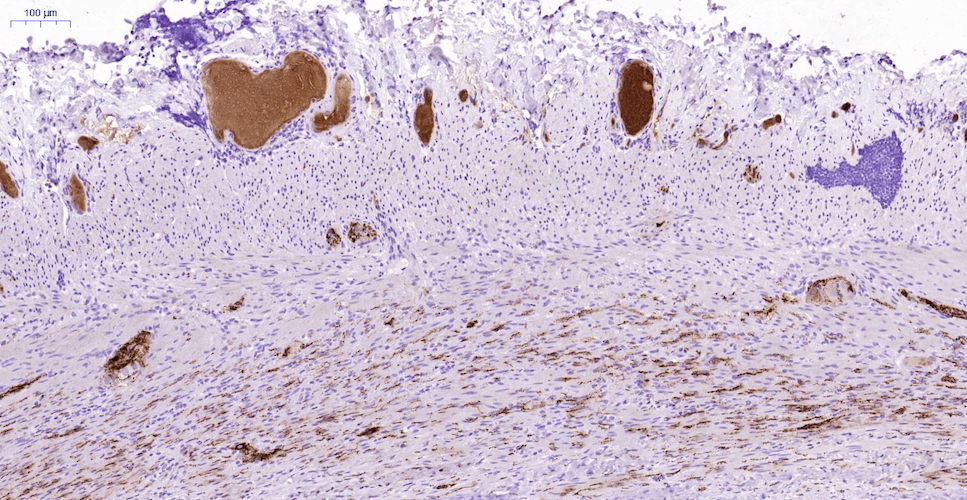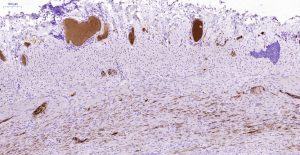Mouse monoclonal antibody
Anti-Peptide Histidine Methionine (PHM)
CAT NO: ABS 020-03 | Application: ELISA, IHC

Cat. No. |
ABS 020-03 |
|---|---|
Specificity |
ABS 020-03 binds human PHM and cross-reacts with PACAP (approximately 12%; incomplete, non-parallel inhibition). ABS 020-03 does not cross-react with GLP-1, GLP-2, VIP or glucagon. |
Immunogen |
Synthetic human peptide histidine-methionine |
Host |
Mouse |
Positive Species Reactivity |
Human |
Negative Species Reactivity |
Not determined |
Isotype |
IgG2a/k |
Gene ID |
7432 |
Clone Number |
3 |
Epitope Specificity |
Not determined |
Unit Size |
400 µL: Cat. No. ABS 020-03-04 1 mL: Cat. No. ABS 020-03-1 1 mg/mL +/- 15%. See Certificate of Analysis for details. |
Purification |
Protein A/G purified (from culture supernatant) |
Form |
Liquid |
Solvent |
0.01 M phosphate buffer, pH 7.4, containing 0.5 M NaCl and 15 mM sodium azide |
Conjugation |
Unconjugated BSA free |
Storage |
4-8ºC without exposure to light. No precautions necessary during handling. |
Target |
Human peptide histidine-methionine (PHM) is a 27 amino acid peptide belonging to the glucagon-secretin family of peptide hormones. PHM is produced from the same prohormone as VIP, with which it shows considerable sequence homology. The VIP/PHM prohormone is produced by neurons in the central and peripheral nervous systems, often together with acetylcholine. In some situations the effect of the peptides is to reinforce and prolong the effects of neurotransmitter release. Like VIP, PHM is a vasodilator and stimulator of intestinal fluid secretion. High plasma levels of PHM are diagnostic of the corresponding peptide-producing tumor (VIPoma), associated with the watery diarrhea-hypokalemia-achlorhydria syndrome. |

